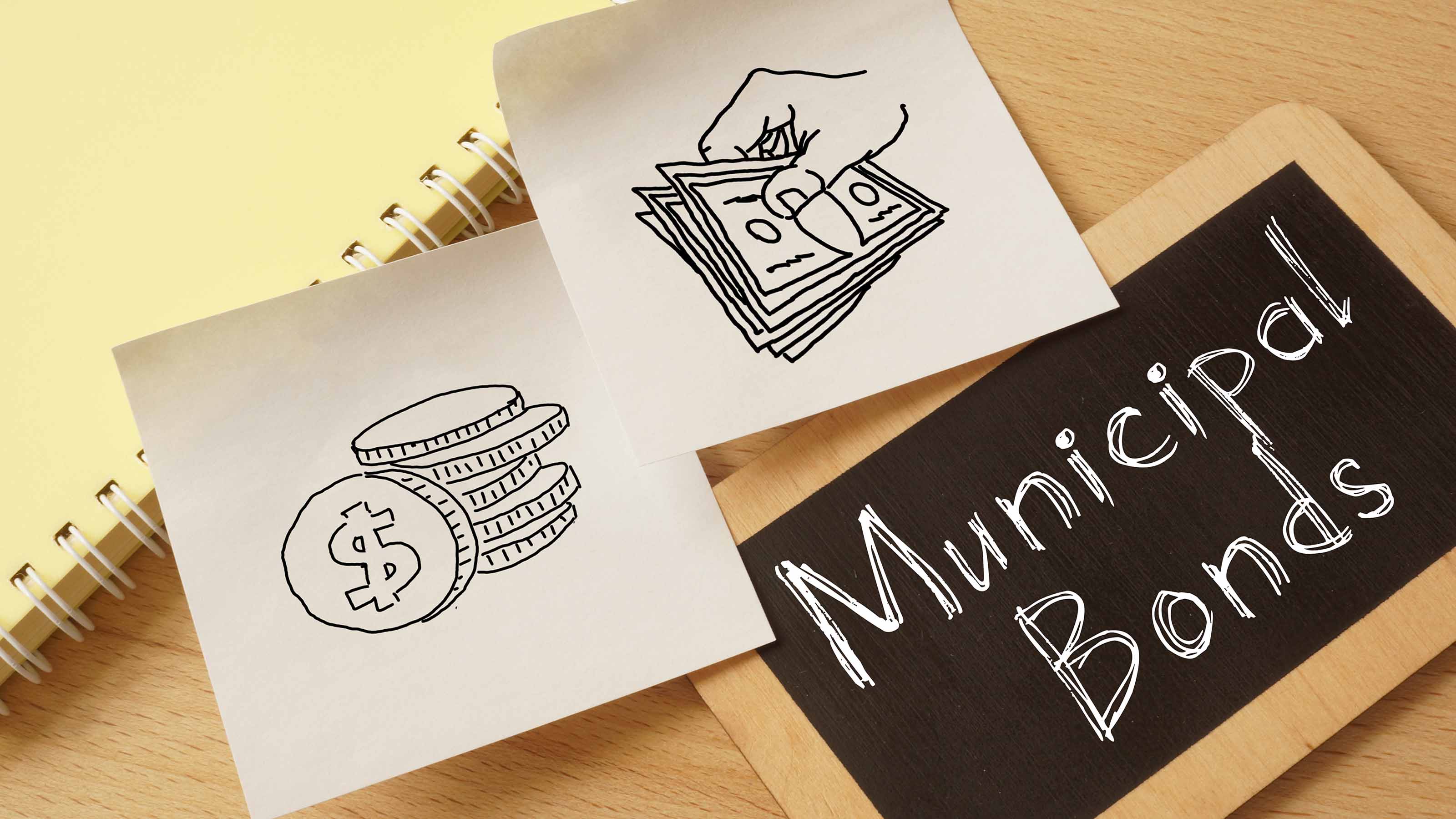Why Interest Rates Will Stay Low
Negative interest rates in Europe and Japan make U.S. bond yields look sky-high by comparison, boosting demand for Treasuries.

Profit and prosper with the best of Kiplinger's advice on investing, taxes, retirement, personal finance and much more. Delivered daily. Enter your email in the box and click Sign Me Up.
You are now subscribed
Your newsletter sign-up was successful
Want to add more newsletters?

Delivered daily
Kiplinger Today
Profit and prosper with the best of Kiplinger's advice on investing, taxes, retirement, personal finance and much more delivered daily. Smart money moves start here.

Sent five days a week
Kiplinger A Step Ahead
Get practical help to make better financial decisions in your everyday life, from spending to savings on top deals.

Delivered daily
Kiplinger Closing Bell
Get today's biggest financial and investing headlines delivered to your inbox every day the U.S. stock market is open.

Sent twice a week
Kiplinger Adviser Intel
Financial pros across the country share best practices and fresh tactics to preserve and grow your wealth.

Delivered weekly
Kiplinger Tax Tips
Trim your federal and state tax bills with practical tax-planning and tax-cutting strategies.

Sent twice a week
Kiplinger Retirement Tips
Your twice-a-week guide to planning and enjoying a financially secure and richly rewarding retirement

Sent bimonthly.
Kiplinger Adviser Angle
Insights for advisers, wealth managers and other financial professionals.

Sent twice a week
Kiplinger Investing Weekly
Your twice-a-week roundup of promising stocks, funds, companies and industries you should consider, ones you should avoid, and why.

Sent weekly for six weeks
Kiplinger Invest for Retirement
Your step-by-step six-part series on how to invest for retirement, from devising a successful strategy to exactly which investments to choose.
The title of my October 2014 column Ignore the Doomsayers. At the risk of plagiarizing myself, what I said nearly two years ago is worth repeating: The benefit of keeping your money at work in high-quality stocks and bonds far outweighs any possible reward from reacting (or, more likely, overreacting) to every market disturbance. If you’ve doubled your money since the financial crisis ended in 2009, don’t get spooked because you didn’t cash out at some fleeting peak and now find your account balances are 10% lighter.
The motivation for reaffirming my original thesis is a parade of headlines and online rants that suggest that you and I are fools for hanging on to our investments because we’re about to get crushed. And I’m not talking about fringe outfits that sell conspiracy theories. I’m referring to commentators at mainstream investment firms and respected publications and websites.
A typical comment about the stock market is that the rally since February is “all smoke and mirrors.” The suggestion is that nothing justifies the advance and that stocks are ready to melt down, just as they did in 1973, 2002 and 2008. Yes, the indexes will experience occasional setbacks, dropping 5% to 10%, maybe a little more, in brief spurts, as they did in the summer of 2015 and early in 2016. But I cannot grasp why more experts don’t get that, given an environment of modest economic growth and low inflation and interest rates, stocks are in a gently rising range that could last for years (see Investing in an Up-and-Down Market).
From just $107.88 $24.99 for Kiplinger Personal Finance
Become a smarter, better informed investor. Subscribe from just $107.88 $24.99, plus get up to 4 Special Issues

Sign up for Kiplinger’s Free Newsletters
Profit and prosper with the best of expert advice on investing, taxes, retirement, personal finance and more - straight to your e-mail.
Profit and prosper with the best of expert advice - straight to your e-mail.
The same holds in the fixed-income arena. I recently saw this headline in the Wall Street Journal: “Bond Move Is Eyed Warily.” The story quotes some fearful bond strategists who tried gamely but unconvincingly to argue that the yield on the benchmark 10-year Treasury bond has no business hanging at or below 2% (the 10-year T-bond yielded 1.8% as of May 6). Of course, an increase in yields would mean lower prices for most bonds and bond funds.
But I don’t see interest rates surging anytime soon. I reread a few analyst commentaries from two or three years ago that made the case that rates would stay “lower for longer” than most expected. Little has changed since to suggest that rates are artificially low only because the world’s governments and central bankers, led by the Federal Reserve, want to keep them that way. Rather, rates are low for perfectly sensible reasons. Credit is in ample supply. The U.S. economy is expanding at about 2% annually, a growth rate that is unlikely to fuel inflation, and Europe and Japan are barely growing at all. Yes, inflation might tick a bit higher with the end of dirt-cheap gasoline, but it won’t zoom.
A banner year. The most meaningful new wrinkle since my 2014 column is the emergence of negative interest rates in Europe and Japan. Those make U.S. bond yields look sky-high by comparison, boosting demand for Treasuries and other kinds of dollar-denominated debt. All of this explains why as of May 6, total returns for all 63 bond benchmarks listed on WSJ.com were in the plus column year-to-date.
Bottom line: Instead of settling for puny bank rates, continue to slide some savings into solid, low-cost mutual funds, such as Pimco Income (symbol PONDX, 3.7% yield), a member of the Kiplinger 25, and Vanguard Intermediate-Term Investment Grade (VFICX, 2.4%).
I am not blind to the risks. It doesn’t take much for hedge funds or tantrum-throwing traders to precipitate a correction. I expect stocks and bonds, including utilities and REITs, to have some bad weeks later this year; August and October are often treacherous. But in the end, the more such brush fires erupt and then burn out with no lasting damage, the less inclined I am to listen to alarms or sound any myself.
Profit and prosper with the best of Kiplinger's advice on investing, taxes, retirement, personal finance and much more. Delivered daily. Enter your email in the box and click Sign Me Up.

Kosnett is the editor of Kiplinger Investing for Income and writes the "Cash in Hand" column for Kiplinger Personal Finance. He is an income-investing expert who covers bonds, real estate investment trusts, oil and gas income deals, dividend stocks and anything else that pays interest and dividends. He joined Kiplinger in 1981 after six years in newspapers, including the Baltimore Sun. He is a 1976 journalism graduate from the Medill School at Northwestern University and completed an executive program at the Carnegie-Mellon University business school in 1978.
-
 Over 65? Here's What the New $6K Senior Bonus Deduction Means for Medicare IRMAA
Over 65? Here's What the New $6K Senior Bonus Deduction Means for Medicare IRMAATax Breaks A new deduction for people over age 65 has some thinking about Medicare premiums and MAGI strategy.
-
 U.S. Congress to End Emergency Tax Bill Over $6,000 Senior Deduction and Tip, Overtime Tax Breaks in D.C.
U.S. Congress to End Emergency Tax Bill Over $6,000 Senior Deduction and Tip, Overtime Tax Breaks in D.C.Tax Law Here's how taxpayers can amend their already-filed income tax returns amid a potentially looming legal battle on Capitol Hill.
-
 5 Investing Rules You Can Steal From Millennials
5 Investing Rules You Can Steal From MillennialsMillennials are reshaping the investing landscape. See how the tech-savvy generation is approaching capital markets – and the strategies you can take from them.
-
 What Fed Rate Cuts Mean For Fixed-Income Investors
What Fed Rate Cuts Mean For Fixed-Income InvestorsThe Fed's rate-cutting campaign has the fixed-income market set for an encore of Q4 2024.
-
 The Most Tax-Friendly States for Investing in 2025 (Hint: There Are Two)
The Most Tax-Friendly States for Investing in 2025 (Hint: There Are Two)State Taxes Living in one of these places could lower your 2025 investment taxes — especially if you invest in real estate.
-
 The Final Countdown for Retirees with Investment Income
The Final Countdown for Retirees with Investment IncomeRetirement Tax Don’t assume Social Security withholding is enough. Some retirement income may require a quarterly estimated tax payment by the September 15 deadline.
-
 Dividends Are in a Rut
Dividends Are in a RutDividends may be going through a rough patch, but income investors should exercise patience.
-
 Why Investors Needn't Worry About U.S. Credit Downgrade
Why Investors Needn't Worry About U.S. Credit DowngradeFitch Ratings The United States saw its credit rating downgraded for just the second time in history, but experts aren't worried about the long-term damage to stocks.
-
 Municipal Bonds Stand Firm
Municipal Bonds Stand FirmIf you have the cash to invest, municipal bonds are a worthy alternative to CDs or Treasuries – even as they stare down credit-market Armageddon.
-
 High Yields From High-Rate Lenders
High Yields From High-Rate LendersInvestors seeking out high yields can find them in high-rate lenders, non-bank lenders and a few financial REITs.
-
 Time to Consider Foreign Bonds
Time to Consider Foreign BondsIn 2023, foreign bonds deserve a place on the fringes of a total-return-oriented fixed-income portfolio.